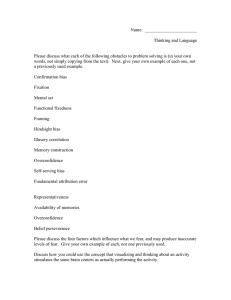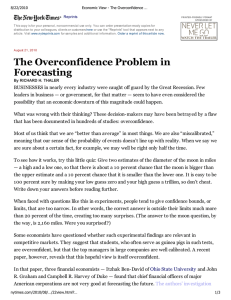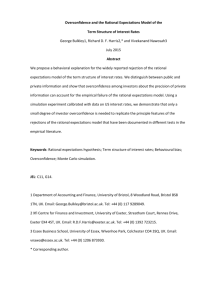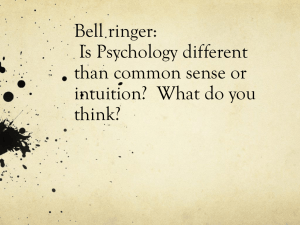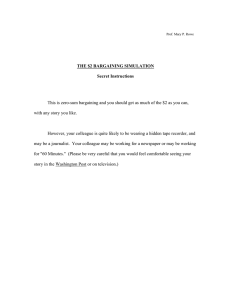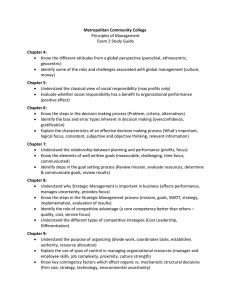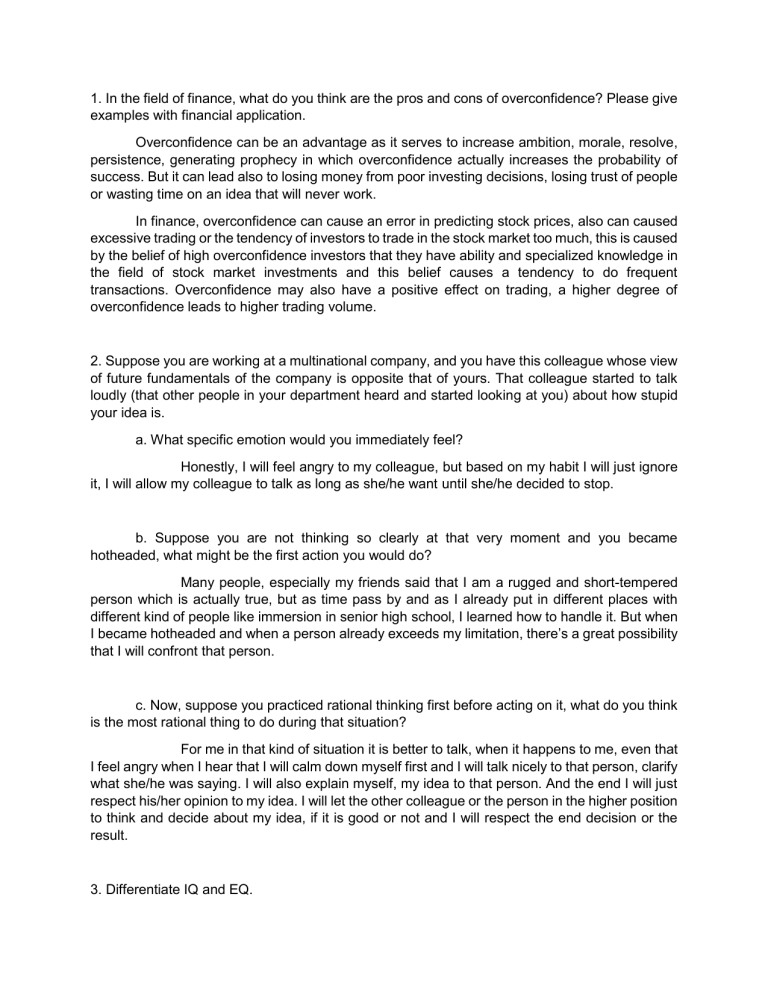
1. In the field of finance, what do you think are the pros and cons of overconfidence? Please give examples with financial application. Overconfidence can be an advantage as it serves to increase ambition, morale, resolve, persistence, generating prophecy in which overconfidence actually increases the probability of success. But it can lead also to losing money from poor investing decisions, losing trust of people or wasting time on an idea that will never work. In finance, overconfidence can cause an error in predicting stock prices, also can caused excessive trading or the tendency of investors to trade in the stock market too much, this is caused by the belief of high overconfidence investors that they have ability and specialized knowledge in the field of stock market investments and this belief causes a tendency to do frequent transactions. Overconfidence may also have a positive effect on trading, a higher degree of overconfidence leads to higher trading volume. 2. Suppose you are working at a multinational company, and you have this colleague whose view of future fundamentals of the company is opposite that of yours. That colleague started to talk loudly (that other people in your department heard and started looking at you) about how stupid your idea is. a. What specific emotion would you immediately feel? Honestly, I will feel angry to my colleague, but based on my habit I will just ignore it, I will allow my colleague to talk as long as she/he want until she/he decided to stop. b. Suppose you are not thinking so clearly at that very moment and you became hotheaded, what might be the first action you would do? Many people, especially my friends said that I am a rugged and short-tempered person which is actually true, but as time pass by and as I already put in different places with different kind of people like immersion in senior high school, I learned how to handle it. But when I became hotheaded and when a person already exceeds my limitation, there’s a great possibility that I will confront that person. c. Now, suppose you practiced rational thinking first before acting on it, what do you think is the most rational thing to do during that situation? For me in that kind of situation it is better to talk, when it happens to me, even that I feel angry when I hear that I will calm down myself first and I will talk nicely to that person, clarify what she/he was saying. I will also explain myself, my idea to that person. And the end I will just respect his/her opinion to my idea. I will let the other colleague or the person in the higher position to think and decide about my idea, if it is good or not and I will respect the end decision or the result. 3. Differentiate IQ and EQ. Intelligence Quotient (IQ) indicates a person’s intelligence level, it measures a person’s academic competency and reasoning ability. Emotional Quotient (EQ) refers to a person’s ability to understand his/her emotion along with other person’s emotions, it measures an individual’s social and emotional expression. IQ is an inborn ability while EQ is learned and improved ability. A person with a high IQ can learn, understand and implement knowledge, and possesses logical reasoning and abstract thinking while a person with good EQ can recognize, control and express one’s own emotion’s, perceive and assess other’s emotion. It is possible that a person has a high IQ level, but low EQ count and vice versa.
